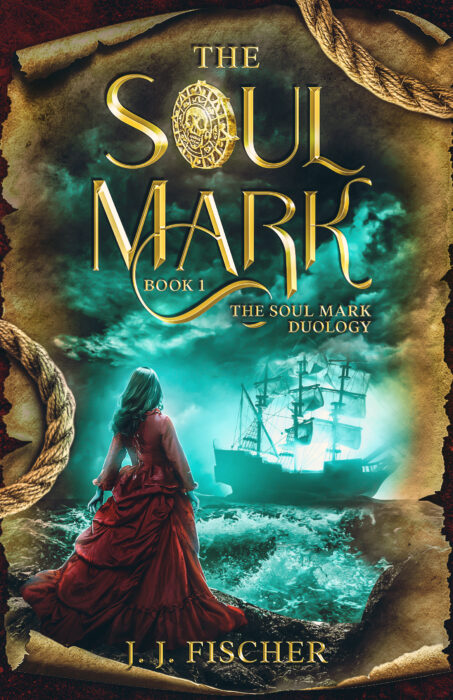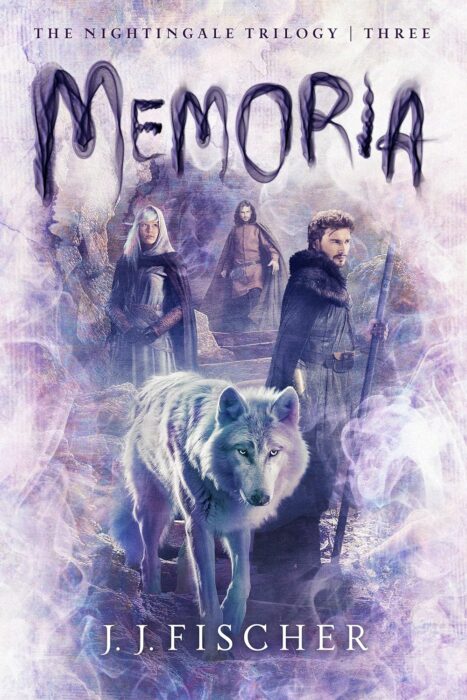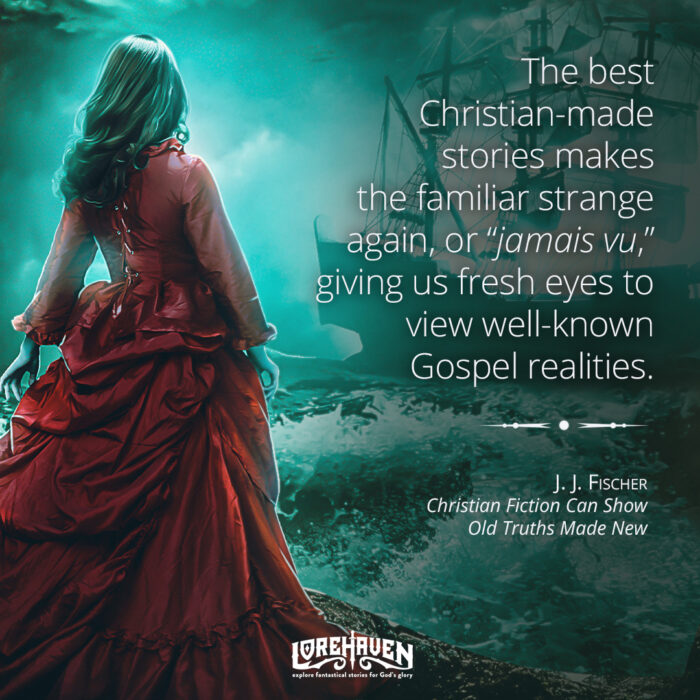Christian Fiction Can Show Old Truths Made New
For most of my writing life, I wrote secular stories.1
When I first started writing, I had no inkling that I would ever write anything that would be remotely related to my Christian faith. In my early adulthood, and throughout my creative writing studies at university, I kept a tidy division between “church” and “state,” preferring to keep matters of faith neatly confined to one area of my life, and matters of philosophy or ideology carefully corralled in another.
Then I discovered Christian fiction.
I’ve noticed that even in the Christian world, few people seem to take note of Christian fiction. Many see “good Christian fiction” as an oxymoron—and perhaps this reputation is deserved, given that “Christian” often means little more than “clean” versions of secular potboilers. This was certainly my prejudice when I first began writing: wasn’t Christian fiction all sweet Amish romances (sometimes nicknamed “bonnet fiction” or “bonnet rippers”) and fluffy inspirational stories like the ones you see on the Hallmark channel? I wanted to read (and write) fiction you could sink your teeth into.
But years later, I was astonished to find a wealth of stories that shattered my preconceptions about Christian fiction. Stories that—unlike much of what the world produces—spoke to the soul.
What is ‘Christian’ fiction, anyway?
Stories are undeniably powerful. Not just in the way they tug at our heartstrings or open our eyes to new ways of viewing the world, but also in the way they shape our attitudes—and even our faith.
I’ve often thought that the Gospel is like a multifaceted diamond. Shine a beam of light, and you’ll illuminate one face of the gem—one powerful truth that will pattern and color your life, should you allow it. Turn the gem a little to the side, and you catch another sparkling surface—another startling, life-altering truth. You can live a hundred years in this world and still be surprised by a beam of light shining on that gem, illuminating something you never noticed before. The words of God are truly living and active (Hebrews 4:12).
Christian fiction, very simply, aims to touch our hearts with stories that illuminate particular truths, which have the power to permeate and pattern every aspect of our life. With such potential, was it any wonder that Jesus himself often spoke in the language of stories?
Mere head knowledge is not enough. It is possible to acknowledge something intellectually and remain unchanged—like the man in James 1:23-24 who looks at himself in the mirror, goes away, and immediately forgets what he looks like. For the writer of the hymn “Amazing Grace,” John Newton, it was years before his convictions about Christianity influenced his conscience to the extent that he abandoned his slave-trading activities and became a prominent supporter of abolitionism.
I am hardly the first person to point out that humans are sometimes more teachable through stories. Pastors who begin their sermons with pithy quotes or meaningful illustrations understand this intuitively. C. S. Lewis reflected on this at length,2 observing the power of myth and story to illustrate deep truths about reality and human nature. Jared C. Wilson puts it like this:
Can even the Christian scholar and philosopher deny that the facts of the gospel are received on a frequency deeper than just the intellect? We discern the facts of the gospel with our minds, of course, but we receive them with our hearts because the Spirit has freed our hearts to receive them as true—to receive Christ as The Truth, the one true myth that is incontrovertibly fact.

The Soul Mark (2023) and its sequel Carver of Souls (2024) complete The Soul Mark Duology series.
Enter the sensation of jamais vu
Most people have heard of déjà vu—the new or strange appearing familiar. But few have likely heard of its opposite, jamais vu (French for “never seen”), which refers to the familiar appearing strange or new.
Christian fiction, done well, functions as literary jamais vu: taking the well-studied, well-known truths of the Gospel and rendering them momentarily unfamiliar so that they can be appreciated anew, especially for those of us who have been Christians for many years. It is this sudden illumination that enables us to take in wondrous Gospel truths as if we were beholding them for the first time. As we marvel at the face of the gem, we contemplate afresh the reality of what Jesus has done for us.
But why enjoy Christian fiction when we already have the Bible?
Before I recommitted myself to Christ at age eighteen (midway through my first year of university), I had carefully steered away from traditional sources of Christian authority and teaching. I found it difficult to engage with the Bible itself, because I wasn’t yet sure if I could trust its assertions, or even its accuracy. I dove headlong into apologetics (particularly the works of journalist and former atheist Lee Strobel), which convinced me of the historical reliability of the Gospel accounts.
But it was Christian fiction which first touched my heart as a young person, opening the way for me to engage with the stories (and The Story) contained in the Bible itself.
The first Christian fiction book I read was Francine Rivers’ A Voice in the Wind, the first installment of her Mark of the Lion trilogy, followed by her bestselling debut novel and literary statement of faith, Redeeming Love. Sometime after that, I read Catherine Marshall’s Christy on the recommendation of a friend, which profoundly influenced my attitude to suffering—more than any other book I’d read on the subject.
I cannot begin to quantify the effect that these books (and many, many others I’ve read since) have had on my Christian journey. Apologetics influenced my mind, but it was Christian fiction that moved my heart. Christian fiction opened the way for me to accept the truth of the Gospel, just as it did for the long-term skeptic, C. S. Lewis. Having been raised in a Christian home, by parents who strove to reflect Jesus, my first need wasn’t more head knowledge, but a fresh experience of the wonder of the cross.
But why enjoy fantasy when we have realistic stories?
As a Christian writer, I strive to write stories of depth and meaning that reflect, if only in part, the depth and richness of God. My goal is to shine light on different faces of the Gospel to help the reader see a particular truth as if they are viewing it for the first time—soli Deo gloria (to the glory of God alone).
I love the fantasy genre for many reasons, but one reason in particular is that it’s a powerful medium for Gospel truth. Its universal themes of good versus evil, sacrifice, hope, and redemption, serve my jamais vu—my attempt to make the familiar strange. As writer Darrick Dean said, in this blog post discussing why young readers are increasingly turning to fantasy: “Perhaps a good dose of fantasy is, ironically, needed to show us reality.”

Memoria, book 3 of The Nightingale Trilogy, is scheduled to release in December 2024.
While many of us often retreat into fantasy as escapism (myself included), our love of fantasy seems also to be a reflection of our attempts to find, as Dean puts it, our “true purpose…[and] place in the Story.”
For this reason, every one of my books to date has been in the fantasy genre:
- My debut series, The Darcentaria Duology, is a fantasy transformation of the story of Ben-Hur and an exploration of suffering, vengeance, and the power of forgiveness.
- My next two books, The Soul Mark Duology, explore the tension between God’s mercy and judgement in a fantasy world where people are forced to pawn their souls for the sake of their families.
- Finally, my award-winning Nightingale Trilogy deals with how people respond to pain in a world where it is possible to edit and anesthetize memories.
A challenge to readers
For those who’ve wondered at the place of Christian fiction in Christian living, I hope this presents a compelling argument for you to engage with the transformative power of stories…alongside the children around you. For some children, reading is as natural as breathing, and books are part of the way that they experience the world. For those of you who are parents or aunts/uncles or grandparents to avid young readers, why not expose your children to The Chronicles of Narnia and other great Christian works?
For those who resist the idea that truth can reside in fiction, I would encourage you to discover the ways—outlined much more eloquently in the work of C. S. Lewis himself—in which God is a God not just of logic and fact but of story. Ultimately, He authors the Great Story, which began at creation and achieves its stunning climax in Jesus’ sacrificial death, with an eternal resolution we look forward to with groaning bodies and aching souls. And this Story is one in which He invites you—not just as reader, but son, daughter, and chosen one—to take your part.
- An original version of this article was first published at TGC Australia with the title “Why I Write Christian Fiction—Specifically Fantasy,” April 12, 2019. ↩
- See this excellent article for a summary of Lewis’ views on how stories teach people. ↩






























Thank you for a great article! And really, a “world where people are forced to pawn their souls for the sake of their families”! I think I’m gonna have to read me some of that! It sounds brilliant! Thank you again! – Jeri
This reminds me of what Bradley J. Birzer writes in his book, J.R.R. Tolkien’s Sanctifying Myth. He wrote fantasy is worth “the effort of entering” in spite of “its many perils and the great possibilities of misunderstanding” because:
“…fairy [fantasy] stories illuminate the vast inheritance our ancestors have bequeathed to us…[they] give us a new sense of wonder about things we have taken for granted or which have become commonplace…[and] provide humans with a means to escape the darkness, conformity, and mechanization of modernity…this is not the same thing as escaping from reality. We still deal with life and death, comfort and discomfort. We merely escape progressivism and the progressive dream, which reduces all of complex reality to a mere shadow of creation’s true wonders.”
I really love this article, thanks to JJ Fischer for writing this. I know in my own life, I’ve had so many struggles with faith. Mostly as a result of my own frailties and weaknesses. What actually kept me from shipwrecking my faith (and life) entirely was Christian fiction. ‘The Circle’ series by Ted Dekker, and ‘Lord of the Rings’ were like anchors in a storm for me. What Fischer said here eloquently sums up exactly how I feel, even though I couldn’t express it. Thanks so much for writing this